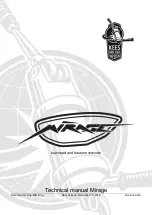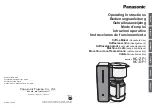
stainless steel
cleaning the exterior
Stainless Steel:
Stainless steel does not stain, corrode, or rust as easily as ordinary steel, but it is not stain or
corrosion proof. Stainless steels can discolor or corrode if not maintained properly.
Stainless steels differ from ordinary carbon steels by the amount metals such as chromium and
nickel used in the alloy. It is the chromium which provides an invisible protective film on the
surface called chromium oxide. If the protective chromium oxide film on the surface is damaged
or contaminated, it can result in discoloration, staining, or corrosion of the iron in the steel.
Care & Cleaning:
Routine cleaning of the stainless steel surfaces will serve to greatly extend the life of your
product by removing contaminants.
This is especially important in coastal areas which can expose the stainless to severe contaminants
such as halide salts, (sodium chloride) and also in pool areas where high concentrations of chlorine
are present.
It is strongly recommended to periodically inspect and thoroughly clean crevices, weld points,
under gaskets, rivets, bolt heads, and any locations where small amounts of moisture could collect,
become stagnant, and concentrate contaminates.
Additionally, any mounting hardware that is showing signs of corrosion should be replaced.
The frequency of cleaning depends upon the installation location, environmental factors, and use.
Cleaning Products:
Ultimately, the choice of a proper cleaning product belongs to the consumer, and there are many
products to choose from. Depending upon the type of cleaning and the degree of contamination,
some products are better than others.
Typically the most effective means of routine cleaning for most stainless steel products is to give
the surfaces a brisk rubbing with a soft cloth soaked in warm water with a gentle detergent, or mild
mixture of ammonia.
Rubbing should follow the polish lines of the steel, followed by a thorough rinsing after cleaning.
CAUTION: There are products on the market
c
alled "stainless steel cleaners," which may contain
abrasives that could scratch the surface, (compromising the protective chromium oxide coating)
and other products which contain chlorine bleach which will dull, tarnish or discolor the surface if
not completely removed. Such cleaners should be avoided.
26







































